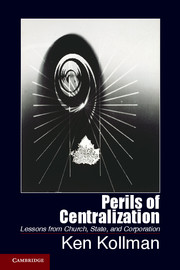3 - Nation-State
Published online by Cambridge University Press: 05 June 2014
Summary
Until the early twentieth century, the national government was not much of a presence in the lives of most Americans. State governments had predominant authority over the internal affairs of their states. They regulated businesses, schools, police forces, byways, relief for the poor, zoning, and liquor sales. With the exceptions of national government intrusion into canal and harbor construction, the running of postal services and customs houses, and occasional drafts for wars – and wars themselves, with Native Americans (i.e., Indians) and Civil War opponents – national and state law, as well as revenues collected by Washington, D.C., sharply limited the role of the national government. Above all, it was expected that government in general be limited, and even if national government intruded, state government was where public policy decisions were made that most affected peoples’ lives.
A description of this time period – until about 1930 – is revealing. First, consider the incentives of the politically ambitious. In this past era, politicians ultimately strove to be mayors, state legislators, and governors. A stint as a member of the U.S. House of Representatives was often temporary and regarded as less desirable. Ambitious politicians who wanted important jobs typically sought positions in state government, whereas joining the U.S. Congress was akin to a grand tour of Europe – an interesting sojourn and time away to gain perspective. Often, as a member of the ruling party in state government, one had to take his turn in Washington. It helped the state governments to have representation in Washington, to stay informed, and especially, to fight against national policies that could harm the state. Occasionally, a native son would ascend to a position of real power in Washington, D.C. – perhaps even president – and that could be beneficial to the people in the home state. Capturing the chairmanship of a key committee could pay dividends for a state. In sum, the purpose of being in Congress was to look toward one’s home state as the beneficiary.
- Type
- Chapter
- Information
- Perils of CentralizationLessons from Church, State, and Corporation, pp. 33 - 71Publisher: Cambridge University PressPrint publication year: 2013

